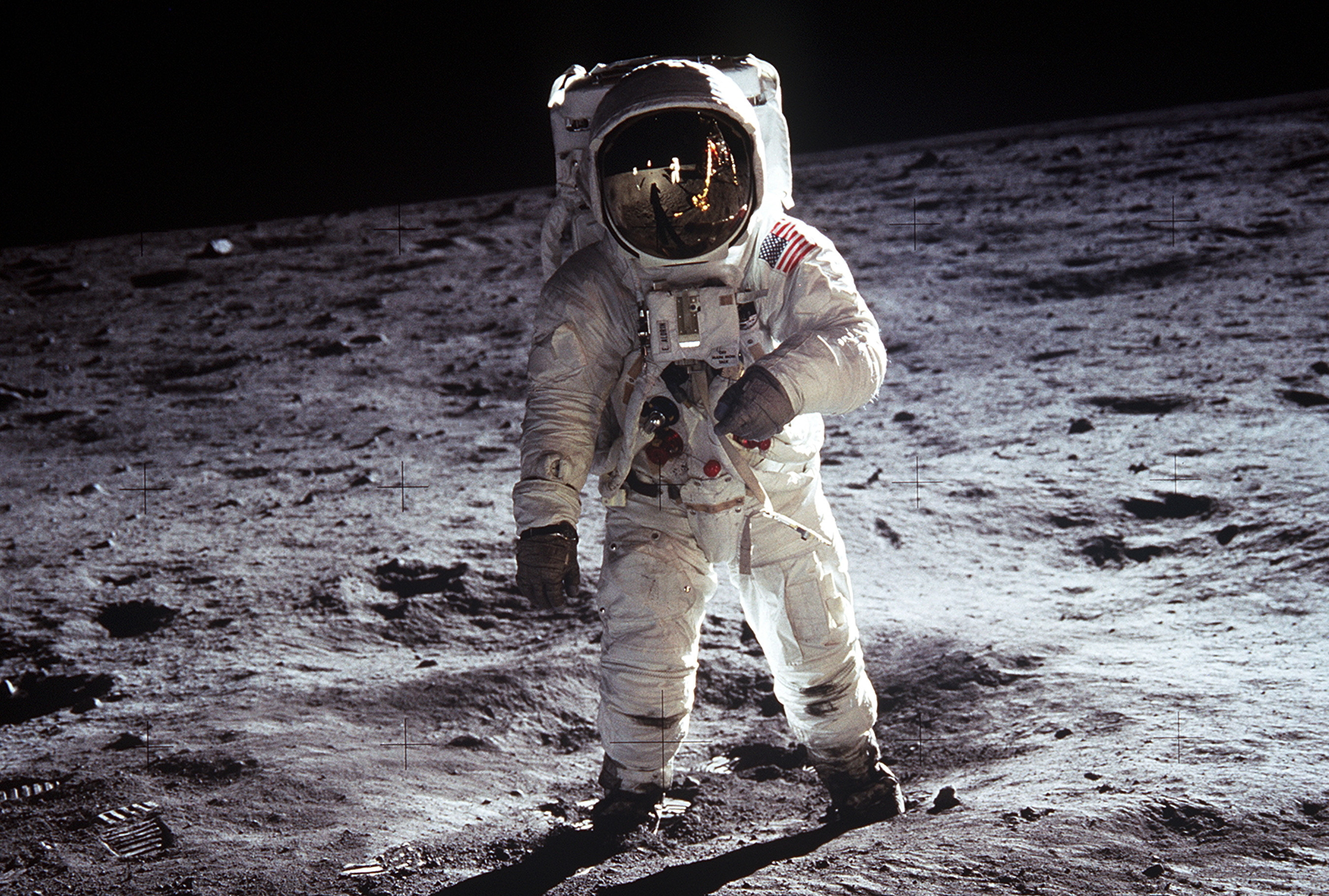Complex projects require coordinating and aligning the efforts of many people in different roles and groups. The job is possible only if everyone is clear on what they’re striving towards, and are compelled to do so. This calls for leaders to clearly articulate the project’s vision.
The importance of having a clear, compelling vision is one of the great lessons of the Apollo moon program. U.S. President John F. Kennedy laid out the vision in a speech delivered to Congress in 1961. This speech was meant to convince lawmakers of the worth of investing in space exploration. Essentially, the President was asking his stakeholders — Congress, and more broadly, the people of the U.S. who they represent — for funding for the project. This is something anyone working in a leadership position can relate to.
President Kennedy’s presentation is a model of how to clearly articulate and sell a vision, so it’s worth studying its highlights. The speech starts by framing the space program in the broader geopolitical context of the Cold War. The Soviet Union had by this point made several impressive technological advances, including launching Sputnik (the first artificial satellite) and sending the first man into space. U.S. efforts were seen as lagging behind the Soviets’, so the President started his remarks with the following statement:
if we are to win the battle that is now going on around the world between freedom and tyranny, the dramatic achievements in space which occurred in recent weeks should have made clear to us all, as did the Sputnik in 1957, the impact of this adventure on the minds of men everywhere, who are attempting to make a determination of which road they should take.
This lays out the urgency and importance of doing something about space: It isn’t far off in the future; it’s recent news. Nothing less than the cause of freedom around the world is at stake.
The President goes on to say his administration has been reviewing the country’s plans for space and has decided it’s time to up the ante:
Now it is time to take longer strides–time for a great new American enterprise–time for this nation to take a clearly leading role in space achievement, which in many ways may hold the key to our future on earth.
I believe we possess all the resources and talents necessary. But the facts of the matter are that we have never made the national decisions or marshaled the national resources required for such leadership. We have never specified long-range goals on an urgent time schedule or managed our resources and our time so as to ensure their fulfillment.
It’s an appeal to national pride, and a challenge: we’ve never tried something as audacious as this before, but we can do it. We have what it takes to pull it off. This instills confidence and elan in the audience.
The President goes on to request that Congress approve funds for several space-related projects. I want to focus on the first of these, which lays out the challenge of going to the moon. Kennedy’s vision statement is very clear, audacious, and compelling:
I believe that this nation should commit itself to achieving the goal, before this decade is out, of landing a man on the moon and returning him safely to the Earth. No single space project in this period will be more impressive to mankind, or more important for the long-range exploration of space; and none will be so difficult or expensive to accomplish.
This statement is the core of the vision. It does three things:
-
It lays out a clear goal: landing a man on the moon and returning him safely to the Earth. This isn’t an abstract, vague notion; almost everyone knows the essential elements — the Earth, the moon, a human being — and understands the audaciousness of the idea.
-
It sets a clear deadline: “before this decade is out.” Given the state of the space program in 1961, this was an aggressive timeframe.
-
It spells out the reasons why the U.S. should do this: it’ll give us geopolitical prestige, it’ll increase scientific knowledge, and it’ll be a tough challenge.
This last reason may seem counterintuitive, but it’s important. What the President is saying here is that taking on this goal will be a test of our mettle. Yes, it’ll prove our worth to the world, but more importantly, it’ll prove it to ourselves. It’ll be a validation of the nation’s spirit. Powerful stuff.

Buzz Aldrin walking on the surface of the moon, July 20, 1969.
Neil Armstrong and Buzz Aldrin walked on the moon a little over eight years after President Kennedy delivered these lines. That moonwalk was the culmination of one of the most complex projects ever undertaken. Apollo required the coordination of a lot of people (over 400,000 were working on the project at one point, distributed over tens of thousands of organizations), huge expenditures, and incredible technological hurdles.
The more I learn about the moon program, the clearer it’s become to me how central Kennedy’s statement to the project’s success. I’ve heard several interviews with diverse people who worked on Apollo and who recalled being clear on the project’s audacious goal and its looming deadline. When the project suffered major setbacks — as seems inevitable with such complex undertakings — Kennedy’s vision kept folks going.
Sadly, President Kennedy didn’t live to see the first moonwalk. (He was assassinated in 1963.) But his clear, compelling articulation of the project’s vision was central to its success. His “moonshot” request to Congress is a model of clear vision and leadership, one worth studying and emulating.